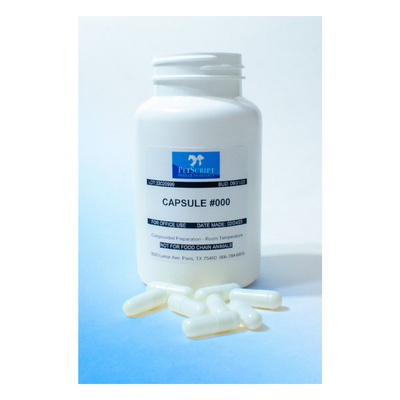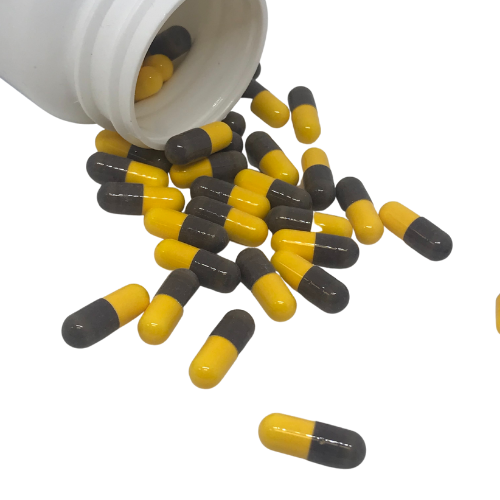Discovering the Systems Behind Fenbendazole and Its Impact on Animal Wellness
Fenbendazole is a widely made use of anthelmintic recognized for its effectiveness versus numerous parasites. Its key mechanism entails the inhibition of microtubule formation, which interferes with essential processes in these pathogens. Past its antiparasitic properties, fenbendazole likewise shows up to improve immune responses and possesses anti-inflammatory advantages. Recognizing these diverse results might expose brand-new applications for animal wellness. However, concerns stay regarding its full capacity and safety account.
The Pharmacokinetics of Fenbendazole
The pharmacokinetics of fenbendazole, an extensively made use of anthelmintic in vet medication, entails the research study of its absorption, circulation, metabolic process, and discharging within pet systems. After management, fenbendazole is quickly soaked up from the intestinal tract, with peak plasma focus occurring within hours. Its distribution is influenced by aspects such as tissue binding and lipid solubility, allowing it to permeate various tissues successfully. The medication undergoes substantial metabolism primarily in the liver, where it is converted into active and non-active metabolites. These metabolites play a function in the medication's general efficacy and safety account. Excretion happens mainly with feces, with a smaller proportion eliminated by means of urine. The half-life of fenbendazole differs amongst types, which influences application programs. Recognizing these pharmacokinetic properties is crucial for optimizing its healing usage and making certain reliable parasite control in vet methods.
Mechanisms of Action Against Bloodsuckers
Fenbendazole exerts its antiparasitic results largely with the restraint of microtubule development in parasites. This disruption impacts their architectural integrity and cellular functions, resulting in damaged basal metabolism. Therefore, the medication successfully endangers the survival and reproduction of different parasitic microorganisms.
Inhibition of Microtubule Formation
Inhibition of microtubule formation stands for a crucial system whereby specific anthelmintic representatives, consisting of fenbendazole, exert their results on parasites. Fenbendazole binds to tubulin, a healthy protein that develops microtubules, disrupting the polymerization process required for microtubule setting up. This interruption harms vital cellular features, consisting of mitosis, intracellular transport, and structural integrity. As microtubules play a vital function in maintaining the form and feature of parasitic cells, their restraint leads to cell cycle arrest and eventual fatality of the bloodsucker. This mechanism is particularly reliable versus nematodes, as their reliance on microtubules for wheelchair and nutrient absorption makes them susceptible to fenbendazole. The inhibition of microtubule formation is a vital element of fenbendazole's healing effectiveness in veterinary medicine.
Interruption of Energy Metabolism
Interfering with energy metabolism is an additional important device through which fenbendazole targets parasitical organisms. This anthelmintic modifies the energy production pathways within bloodsuckers, mostly affecting their ability to generate adenosine triphosphate (ATP) By hindering sugar uptake and interfering with mitochondrial feature, fenbendazole restrictions the energy sources essential for the survival and recreation of these organisms. As an outcome, bloodsuckers end up being significantly at risk to ecological tensions and immune responses. In addition, the disturbance in energy metabolic rate not just affects the parasites directly yet additionally lowers their capability to take in nutrients, additionally hindering their development. Overall, the disruption of basal metabolism stands for an essential aspect of fenbendazole's efficiency versus different parasitical infections, contributing considerably to boosted pet health and wellness end results
Prospective Adverse Effects and Security Account
The possible adverse effects and safety profile of fenbendazole warrant cautious consideration, specifically in vet applications. While normally pertained to as safe, some animals might experience negative responses, including stomach disruptions such as throwing up and diarrhea. In addition, neurological signs and symptoms, although unusual, have actually been reported in delicate people, highlighting the requirement for monitoring during therapy.

Fenbendazole's safety and security in various varieties, consisting of canines and pet cats, has actually been recorded, however dose and duration of treatment must be thoroughly taken care of to lessen dangers. Pregnant or lactating animals may additionally call for special interest, as the effects on developing fetuses or nursing spawn are not fully comprehended.
Regular vet appointments can help mitigate prospective adverse effects and guarantee the medicine is provided properly. While fenbendazole is an effective anthelmintic representative, watchfulness regarding its side effects is necessary for preserving pet health.
Fenbendazole's Influence on Immune Feature
Fenbendazole has been noted for its prospective to regulate body immune system responses in pets. Its anti-inflammatory homes might add to improved immune function, providing a twin advantage in managing wellness (fenbendazole). Comprehending these results is necessary for evaluating fenbendazole's role in veterinary medicine
Immune System Inflection

Anti-inflammatory Qualities
Anti-inflammatory results represent a considerable element of fenbendazole's influence on immune function. Research study shows that fenbendazole may minimize the manufacturing of pro-inflammatory cytokines, which are pivotal in mediating inflammatory responses. By regulating these cytokines, fenbendazole can possibly ease inflammation-related problems in pets. This anti-inflammatory activity not just aids in handling symptoms related to various conditions yet likewise boosts total immune system efficiency. Additionally, its capacity to advertise a balanced immune feedback helps protect against too much inflammatory damages, which can bring about persistent health and wellness problems. Fenbendazole's role in swelling administration highlights its value in veterinary medication, giving a double benefit of antiparasitic activity and immune system assistance for animal health.
Applications Past Standard Parasitic Infections
While largely acknowledged for its performance against different parasitic infections, fenbendazole has actually gathered interest for prospective applications past this typical scope. Current studies suggest that fenbendazole might have beneficial results on cellular health and immune feedback, making it an interesting candidate for managing various other health and wellness problems in pets. Its reported anti-inflammatory properties may give alleviation for pets suffering from chronic inflammatory illness. Furthermore, some research study suggests that fenbendazole might play a duty in supporting the general health of animals by enhancing nutrient absorption and stomach health and wellness. Its possible as an get more adjunct therapy in cancer cells therapy has stimulated rate of interest, as preliminary searchings for suggest it might inhibit growth cell development in certain contexts. These diverse applications highlight fenbendazole's convenience, encouraging additional expedition into its complex advantages for pet wellness past its conventional use as a deworming representative.
Future Study Instructions and Implications for Animal Wellness
The exploration of fenbendazole's potential applications has opened up new methods for research study targeted at boosting pet health and wellness. Future research studies might concentrate on its effectiveness versus a broader array of pathogens, consisting of germs and viruses, thus expanding its function in vet medication. The effects of fenbendazole's mechanisms, such as its effect on immune inflection, warrant additionally examination to comprehend just how it can reinforce general health and wellness in various types.
Furthermore, research might explore suitable does and solutions to optimize efficacy while decreasing prospective negative effects. Examining fenbendazole's collaborating results with various other medicines can bring about a lot more reliable therapy procedures. Longitudinal researches assessing long-lasting results in pets treated with fenbendazole could offer valuable insights right into its security and efficiency. Generally, the ongoing exploration of fenbendazole offers promising possibility to boost pet health, demanding a collaborative method among researchers, veterinarians, and pharmaceutical developers to promote developments in this field.
Often Asked Concerns
Can Fenbendazole Be Used in Animals for Parasite Prevention?
The concern of whether fenbendazole can be made use of in animals for parasite prevention recommended you read matters, as manufacturers seek efficient treatments (fenbendazole 444). Research study suggests it may provide benefits, yet appropriate standards and vet guidance are crucial for risk-free use
What Is the Advised Dose of Fenbendazole for Various Animals?

Exist Any Known Medicine Interactions With Fenbendazole?
Present knowledge shows that fenbendazole might communicate with particular medicines, potentially impacting their effectiveness or metabolic rate. Vet specialists recommend seeking advice from with a veterinarian to evaluate private animal situations and determine any type of possible interactions before administration.
Just How Does Fenbendazole Compare to Various Other Antiparasitic Medicines?
Fenbendazole is often compared to other antiparasitic drugs based upon efficacy, range of activity, and safety accounts. It is favored for its efficiency versus a variety of parasites while typically showing minimal adverse effects in animals.
Is Fenbendazole Effective Versus Viral or Bacterial Infections in Pets?
The effectiveness of fenbendazole versus viral or microbial infections in animals stays unverified. Study largely see page concentrates on its antiparasitic properties, with minimal proof supporting any duty in dealing with non-parasitic infections in vet medication.